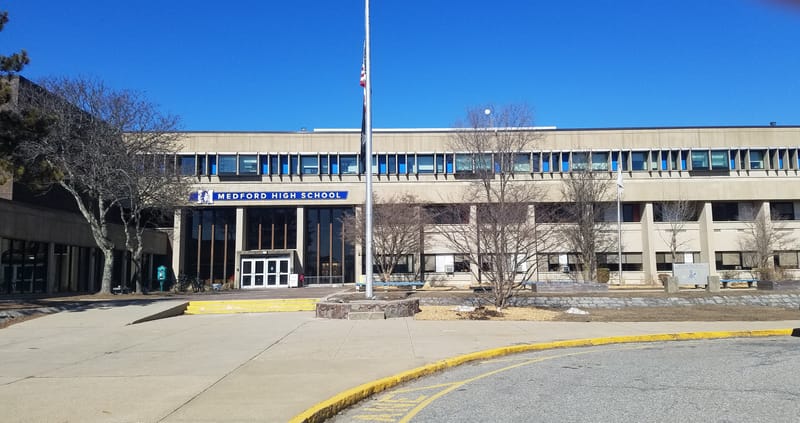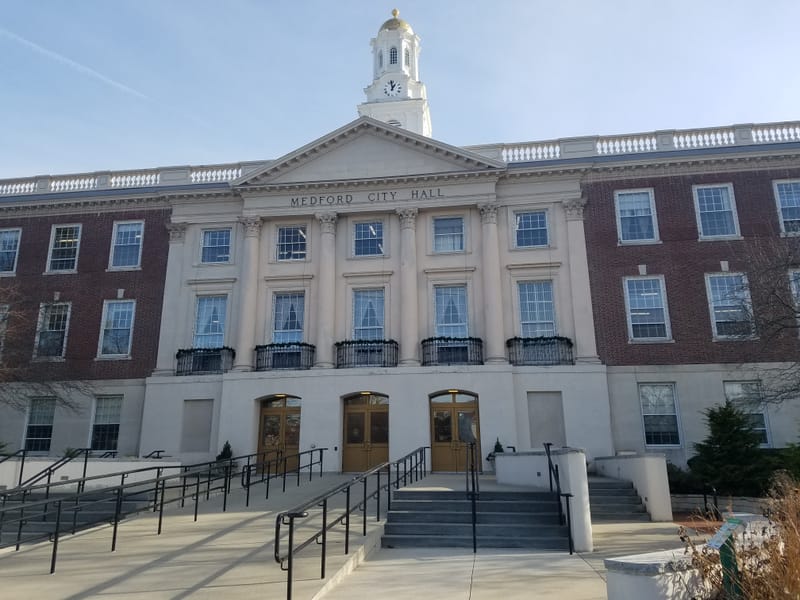Medford Affordable Housing Trust to present Action Plan to council in September
Medford’s Affordable Housing Trust (MAHT) will be presenting an Action Plan to the City Council come September.
By Neil Zolot | Correspondent
Medford’s Affordable Housing Trust (MAHT) will be presenting an Action Plan to the City Council come September.
“We have a report,” said Katherine Buckingham, housing planner for the city. “We’re welcoming input and will work on finalizing the plan.”
Buckingham said the city is accepting comments from residents through Aug. 7 via her email address, kbuckingham@medford-ma.gov.
Refinements may be discussed at the next MAHT meeting on Wednesday, Aug. 13.
The plan will be sent to the City Council for approval.
“All of us will have to look it over, but I don’t think it will be all that controversial,” City Councilor Matt Leming said. “Most members feel affordable housing is a priority.”
“Many councilors are supportive of affordable housing and having more affordable housing,” Buckingham agreed. “This is a roadmap.”
The Affordable Housing Trust was established in 2024. Its general goals include addressing local housing needs and meeting production goals, working to meet the Massachusetts General Law 40B goal to have at least 10% of housing units on the Subsidized Housing Inventory (SHI), and continuing to promote initiatives to address local housing needs.
The Action Plan sets a target of 120 homes being added to the SHI annually, or 600 SHI units by 2025; promoting a welcoming, diverse, intergenerational, and inclusive city with an ideal mix of housing choices that offer diverse options to residents with varying needs and preferences; fostering safe, well-designed and sustainable housing to ensure new homes of all types are sensitive and compatible in scale, siting, and design to neighborhood context; integrating affordable and diverse housing options throughout the city at a scale that is compatible with the built environment; preserving the affordability of existing affordable homes; expanding local capacity to implement housing initiatives and promoting transparency and engagement and increase awareness of fair housing issues.
Around 5,500 households (25%) are below 50% Area Median Income (AMI.) Two-thirds of these are housing-cost burdened, with a significant share spending more than half of their income on housing.
Medford has a significant share of low-income homeowners. Seniors over age 65 comprise 33% of all homeowners, and the median income for senior households is only $44,000.
The median household income for all households is $115,000 (2018-2022 ACS).
Young adults, renters, and non-family households have lower median incomes, but the disparity is less than the county or state-level data. Median household income for renters has increased rapidly, reflecting the income that it requires to move into most apartments in Medford and the loss of lower income households being displaced by rent escalation with seniors experiencing the highest rate of housing cost burden, both among renters and homeowners.
Thirty percent of the AMI is considered extremely low income, 50% very low and 80% low. In Medford, 14% of households are extremely low, 12% very low and 11% low.
Orientation material from the MAHT indicates the average condo price is $637,000, the average apartment rental price is $3,000 per month and the average roommate rent is $1,000 monthly.
“There isn’t one single industry in the Boston region where the average wage is sufficient to buy a house, the average house in Medford with a single income,” orientation material reads. “Median household income for renters is rising, reflecting what it requires to move in. Households with lower incomes are moving out.”
Housing for people earning 30% of the AMI is usually public housing, 60% considered deeply affordable, 80% affordable and 100% moderate, but the AMI is a regional calculation.
Medford is in a cohort with similar communities like Everett and Malden, but also high income communities like Newton, North Reading and Winchester, which calls into question the definition of affordable.
Due to the affluent communities in the AMI, it doesn’t reflect earnings in Medford, so “affordable” rents are based on incomes higher than those in the city. The income levels in wealthier communities could skew the AMI above the means of many Medford residents.
Goals in a related 2023 zoning recodification Comprehensive Plan include:
• Updating zoning to allow for multi-family dwellings of different typologies in different zoning districts.
• Actively pursue mixed-income and mixed-use residential development opportunities for vacant and underutilized lots in Medford’s business districts, such as existing surface parking lots and property owned by state agencies.
• Identifying appropriate housing types between four-family and more recent large developments to address a missing segment of housing size and affordability.
• Considering allowing smaller housing on non-conforming lots to add to housing stock.
• Reviewing the impact of inclusionary housing ordinance and consider changes, such as cash-in-lieu for units or partial units.
• Enabling smaller and more diverse housing options through zoning updates.
• Updating zoning to foster affordable infill development.
• Continuing to foster partnerships and relationships with mission-driven and nonprofit developers to amplify the work of the city, Housing Authority, and existing local housing organizations.
• Creating neighborhood or area specific design guidelines for the Community Development Board to use at site plan review that consider history/development patterns.
“As a city councilor, I’m concerned with what plans we can implement to generate housing that is more affordable than what we have now,” Leming said. “The goal is to determine a mechanism for funding and strategies to have more affordable housing.”
Funding sources outlined in the Action Plan include funds from the Community Preservation Act, linkage and negotiated development payments from developers.
Other sources could be use of Payments in Lieu of Taxes (PILOT) from non-profit organizations, proceeds from selling city property, a real estate transfer fee, voluntary donations and contributions and Affordable Housing Trust Funds, possibly including rental assistance or down payment assistance, being issued as loans.
“There’s a lot of interest in building affordable housing in Medford, but not a lot of money to,” MAHT member Penelope Taylor said.
Medford established a linkage program in 1990, in which developers contribute to city coffers which currently covers things like parks, but not affordable housing. It’s updated or is supposed to be every three years and accumulated funds lose value as costs go up.
Leming and others are hoping for passage of a bill in the state Legislature that will allow yearly updates and expansion of the linkage program. Part of that will involve a study to justify linkage fees for affordable housing.
“It’s important for us to understand housing so we can prioritize resources,” Taylor said.





